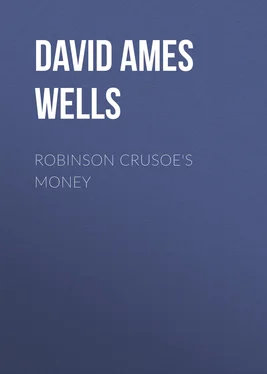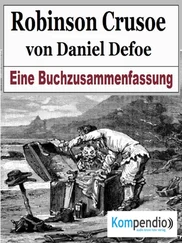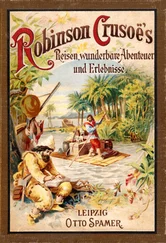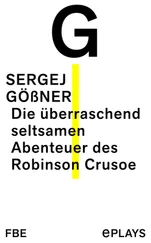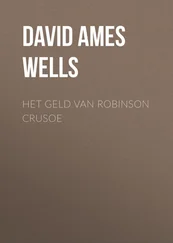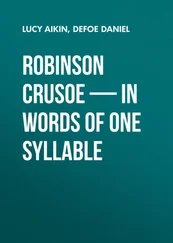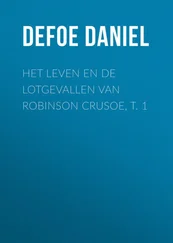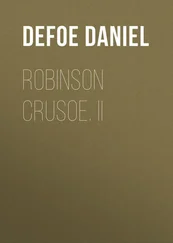David Ames Wells - Robinson Crusoe's Money
Здесь есть возможность читать онлайн «David Ames Wells - Robinson Crusoe's Money» — ознакомительный отрывок электронной книги совершенно бесплатно, а после прочтения отрывка купить полную версию. В некоторых случаях можно слушать аудио, скачать через торрент в формате fb2 и присутствует краткое содержание. Издательство: Иностранный паблик, Жанр: popular_business, foreign_edu, на английском языке. Описание произведения, (предисловие) а так же отзывы посетителей доступны на портале библиотеки ЛибКат.
- Название:Robinson Crusoe's Money
- Автор:
- Издательство:Иностранный паблик
- Жанр:
- Год:неизвестен
- ISBN:нет данных
- Рейтинг книги:4 / 5. Голосов: 1
-
Избранное:Добавить в избранное
- Отзывы:
-
Ваша оценка:
- 80
- 1
- 2
- 3
- 4
- 5
Robinson Crusoe's Money: краткое содержание, описание и аннотация
Предлагаем к чтению аннотацию, описание, краткое содержание или предисловие (зависит от того, что написал сам автор книги «Robinson Crusoe's Money»). Если вы не нашли необходимую информацию о книге — напишите в комментариях, мы постараемся отыскать её.
Robinson Crusoe's Money — читать онлайн ознакомительный отрывок
Ниже представлен текст книги, разбитый по страницам. Система сохранения места последней прочитанной страницы, позволяет с удобством читать онлайн бесплатно книгу «Robinson Crusoe's Money», без необходимости каждый раз заново искать на чём Вы остановились. Поставьте закладку, и сможете в любой момент перейти на страницу, на которой закончили чтение.
Интервал:
Закладка:
But to return to the island. Although the first experience of the islanders in selecting a commodity to be used as money had been particularly unfortunate, the necessity of having some agency to serve the purpose of money remained as great as before, and consequently a new commodity had to be selected. Various people proposed various things. Some proposed to use bananas, which were always desirable, and, when good and ripe, were always exchangeable at a very constant value; but their unfitness to be used as money was acknowledged as soon as it was pointed out that bananas decayed very quickly after they became most useful, and that therefore a man who had plenty of money to-day might have none tomorrow, and that through no fault of his own. 6 6 “Some years since, Mademoiselle Zélie, a singer of the Théâtre Lyrique at Paris, made a professional tour round the world, and gave a concert in the Society Islands. In exchange for an air from ‘Norma,’ and a few other songs, she was to receive a third part of the receipts. When counted, her share was found to consist of three pigs, twenty-three turkeys, forty-four chickens, five thousand cocoa-nuts, besides considerable quantities of bananas, lemons, and oranges. At the Halle (market) in Paris, the prima donna remarks, in her lively letter printed by M. Walowski, this amount of live stock and vegetables might have brought four thousand francs, which would have been good remuneration for five songs. In the Society Islands, however, pieces of money were very scarce; and as mademoiselle could not consume any considerable portion of the receipts herself, it became necessary in the mean time to feed the pigs and poultry with the fruit.”—Jevons’s Money and Mechanism of Exchange .
Wheat, cattle, and pieces of stamped iron were also proposed, but all of these were found to be unsuitable in some essential particular. Thus, for example, it was objected to wheat, that, though it was almost always in demand, and represented a very constant amount of labor for its production, it was too bulky to carry about, and rarely had the same exact value one year as another; to cattle, that it was impossible to divide up an ox, cutting off the tail at one time and the ears at another, for the purpose of making change, without destroying the value of the animal as a whole; and that if cows in general were to be used as legal tender to pay debts, the very poorest cow would very probably be selected from the money-pen for such a purpose; 7 7 In 1658, it was ordered by the General Court of Massachusetts that no man should pay taxes “in lank cattle.”—Felt’s Massachusetts Currency .
while, if iron were adopted as money, and circulated at its current value, it might be necessary to move about a ton to pay a debt of twenty or thirty dollars.
A peculiar kind of beads, made of blue glass, had come into use with the women on the island as ornaments, and being greatly in demand, small in bulk, and of most durable material, they were thought to be peculiarly well fitted to serve the purpose of money. They were accordingly adopted, and for a time fairly answered the purpose. But all at once the women declared their continued use to be unfashionable; and all use and demand for the beads at once ceasing, the merchants and others who had accumulated a large stock of them, in exchange for other commodities, at the same moment found that what they had regarded as money had no longer any purchasing power or value, and in consequence experienced great losses. Thereupon the community concluded not to use blue glass beads any longer as money. 8 8 This incident is related by Burton, in his “Explorations of the Lake Regions of Central Africa” (1858-’59), as one within his knowledge of actual occurrence.
How fast the people on the island, by reason of their varied experience, educated themselves up to a knowledge of what constitutes good money may be inferred from the following incident:
A portion of the inhabitants on the island were heathen, and, to defray the expense of efforts to civilize and Christianize them, it was the habit of certain good men to take advantage of the assembling of the people from time to time to solicit and receive contributions for such objects. It was observed, however, on such occasions that some persons, either through ignorance of what constitutes money, or by reason of great poverty, were in the habit of depositing commodities in the hat which were not money; and the practice having been brought to the attention of Robinson Crusoe (who generally presided at such meetings), he is reported to have administered rebuke and instruction in the following impressive manner:
“Before proceeding to take up our regular contribution for the heathen,” he said, “I would suggest to the congregation—and more especially to those who sit in the gallery—that the practice of putting into the hat commodities which are not money, more especially buttons, shows a degree of ignorance respecting the uses of money on the part of some in this community which I had not supposed possible, after all our recent and varied experience on this subject. But if, through ignorance or impecuniosity, any should feel obliged to continue to contribute buttons in the place of money, I would request that they do not stamp down or break off the eyes; inasmuch, as while by so doing they utterly destroy the utility of these commodities as buttons, and do not increase their desirability as money, they also utterly fail to deceive the heathen; who, although ignorant of the Gospel, and not using buttons for any purpose, are nevertheless, as a general thing, good judges of currency.”
Конец ознакомительного фрагмента.
Текст предоставлен ООО «ЛитРес».
Прочитайте эту книгу целиком, купив полную легальную версию на ЛитРес.
Безопасно оплатить книгу можно банковской картой Visa, MasterCard, Maestro, со счета мобильного телефона, с платежного терминала, в салоне МТС или Связной, через PayPal, WebMoney, Яндекс.Деньги, QIWI Кошелек, бонусными картами или другим удобным Вам способом.
1
That the inconveniences experienced by a community attempting to conduct its exchanges exclusively by pure and direct barter as here depicted, are not only not imaginary, but have their exact counterpart in the present every-day experiences of countries of great geographical area and population, is proved by the testimony of Barth, Burton, and other recent travelers in Eastern Africa. Thus Barth, for example, says (see “Travels,” vol. i., p. 568; vol. iii., p. 203) that he was repeatedly prevented from buying what he absolutely needed—corn, rice, etc.—because he did not have, and could not get, what the people wanted in exchange; and, again (vol. ii., p. 51), he states that so great was the difficulty of getting things in some of the African towns which he visited, in consequence of the people having no general medium of exchange, that his servants would often return from their purchasing expeditions in a state of the utmost exhaustion.
2
“The precious metals have many qualities which fit them for use as coin money. Their defects are their weight, their intrinsic value as commodities.”— Social Science and National Economy, by R. E. Thompson , Philadelphia, 1875.
“The moment it is perceived that money is nothing but a token, it becomes evident that any token currently accepted in exchange of useful services and products of labor will perform the proper functions of money without regard to the material of which it is made; and that the less costly the material out of which money is made, the better for the community that uses it.”— Money, Currency, and Banking, by Charles Moran , New York, 1875, p. 42.
Читать дальшеИнтервал:
Закладка:
Похожие книги на «Robinson Crusoe's Money»
Представляем Вашему вниманию похожие книги на «Robinson Crusoe's Money» списком для выбора. Мы отобрали схожую по названию и смыслу литературу в надежде предоставить читателям больше вариантов отыскать новые, интересные, ещё непрочитанные произведения.
Обсуждение, отзывы о книге «Robinson Crusoe's Money» и просто собственные мнения читателей. Оставьте ваши комментарии, напишите, что Вы думаете о произведении, его смысле или главных героях. Укажите что конкретно понравилось, а что нет, и почему Вы так считаете.
